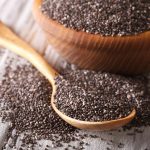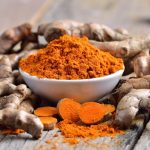Deodrants and anti perspirants
Deodorant and anti-perspirants are used to prevent embarrassing social situations. Naturally, smelling nice is part of good personal hygiene.
Most deodorants and anti-perspirants contain aluminium, parabens and propylene glycol. There are growing links between the chemicals found in such products and chronic diseases such as Alzheimer’s and breast cancer.
Aluminium is widely used and you may not be aware of the level of contact with aluminium. It is in anti-perspirants and deodorants. It is in soft drink cans (made of aluminium). It can also be found in medicine such as “buffered aspirins” and is used for many cooking utensils.
In deodorants and anti-perspirants it comes in the form of aluminium chloride or aluminium sulphate, it helps to stop you from sweating. However, sweating is an extremely important function of the body and it serves the purpose of maintaining the body temperature as well as eliminating toxins.
So the idea of stopping perspiration is in opposition to the body’s natural health maintaining system. It makes no sense to “stop” perspiration since perspiration is a vital function.
Dr Chris Exley from Keele University, a researcher into the toxicity of aluminium, and awarded a Royal Society University Research Fellowship in the field “The Bioinorganic Chemistry of aluminium and Silicon” said:
Aluminium is a metalloestrogen, it is genotoxic, is bound by DNA and has been shown to be carcinogenic. The confirmed presence of aluminium in breast tissue biopsies highlights its potential as a possible factor in the aetiology of breast cancer.
The World health Organization has linked exposure to aluminum to Alzheimer’s disease, with higher frequencies of deodorant use corresponding to higher risks of developing Alzheimer’s. Unusually high levels of aluminium accumulation has been found in the brains of people with Alzheimer’s disease. Further, when aluminium is injected into the brains of laboratory animals, the animals develop a neurological disease similar to Alzheimer’s.
Then we have parabens which are used as preservatives. The problem with them is that they are similar to oestrogens in their activity and may disrupt the proper functioning or hormones in the body. There are studies showing that parabens have been found in the tumours from breast cancer sufferers. They are mostly found in the area nearest to the underarm in the outer parts of the breast.
Another addition to these cosmetics is mineral oil which is used to block pores, thereby subduing perspiration and preventing the detoxification process.
Then we have propylene glycol which is an agent that prevents substances from drying out. Propylene glycol was (and still is) used as an anti-freeze and it has found its way into deodorant. So what is propylene glycol? It is a neurotoxin that has been known to cause contact dermatitis, kidney and liver damage.
The Material Safety Data Sheet (MSDS) for propylene glycol by the National Institute for Occupational health and Safety warns workers to avoid skin contact with the toxic chemical. However, millions of people use it under their arms every single day. From the MSDS:
May cause eye irritation, skin irritation. Chronic exposure can cause gastro-intestinal disturbances, nausea, headache, vomiting, and central nervous depression.
In addition when using spray-based deodorants and anti-perspirants, you inevitably inhale the toxic elements in these products.
So if you shouldn’t prevent perspiration, how can you control the smell. Well it comes down largely to what you eat. Is that a surprise? It shouldn’t be. Without being overly polite here, if your stool smells differently depending on what type of foods you eat, it should make sense that the smell of your sweat, to some degree or other, will be influenced likewise by what you eat. Lots of caffeine, for example, leads to a pungent type of body odour.
If you adhere to the optimum diet, which consists of mainly vegetables and fruit (80%) and limit the meat and unhealthy (oxidized, pro-inflammatory, polyunsaturated) fat intake, and also reduce the amount of refined carbohydrate intake, your body odour will not smell as bad.
This mean’s that you will not have to take such drastic measures as sticking anti-freeze under your armpits, blocking your pores and preventing normal and essential bodily functions such as perspiration. This just makes your body retain the toxins that it is trying to excrete for your own protection and well-being.
As everybody is different, for some people even a change in diet may not be enough and they may find that they need “extra protection” against those embarrassing social situations.
If that is you, then you should try and search for aluminium-free,anti-freeze free, paraben-free cosmetics. There are many natural deodorants available now, so you have to experiment and find out which one works well for you.
You can purchase many deodorants today that do not contain aluminium, propylene glycol and parabens.




